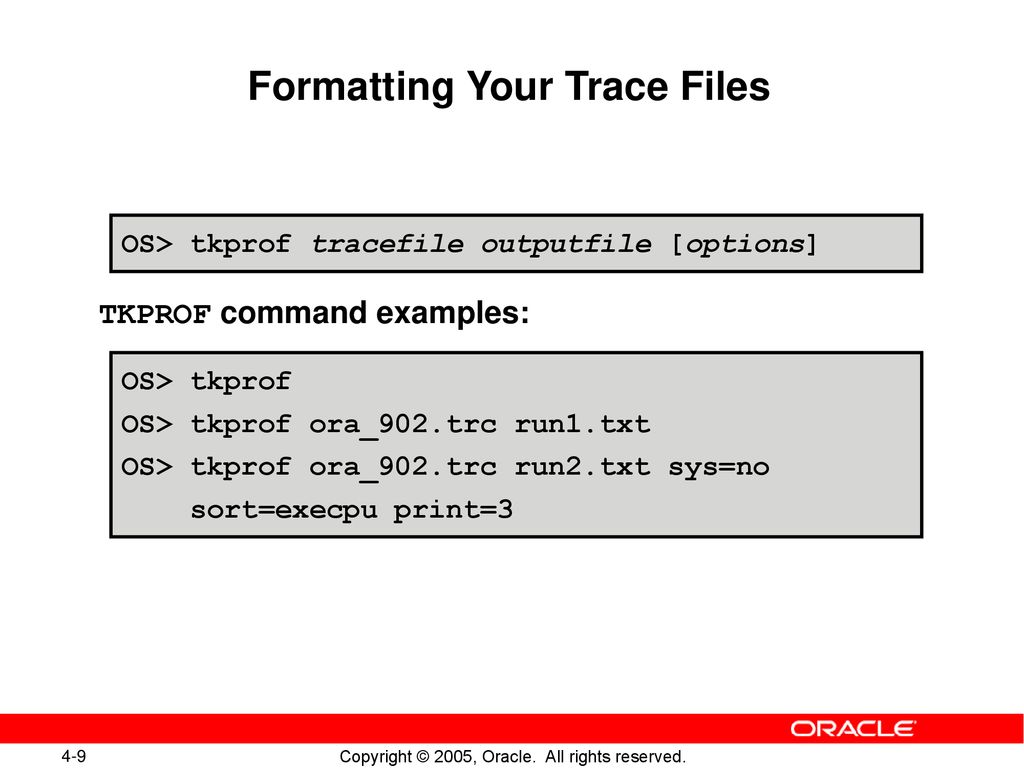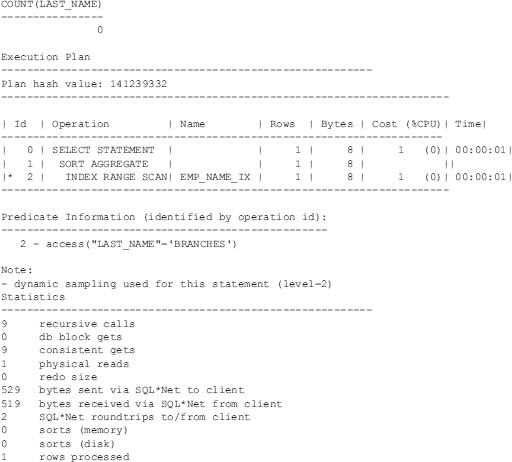

If you generate an interrupt while using SQL*Plus, the behavior depends on whether SQL*Plus or the target Oracle server was in control when the interrupt was processed.

Besides the normal interrupt handler that is established when connecting to Oracle from TSO or a shell, SQL*Plus establishes its own handler to allow termination of display output. Interruption refers to using the terminal ATTN or PA1 key (in TSO) or a POSIX signal mechanism such as Ctl-C to interrupt in progress activity. There are various options to control exactly what gets written as well as a SPOOL command to write output to a separate data set or file. SQL*Plus output (including the aforementioned prompts) is written to C standard output.
#How to use tkprof how to#
In this case, if the password is entered separately from the userid, it is not displayed at the terminal.įor certain database control operations (such as Oracle startup and shutdown), SQL*Plus requires a special userid/password parameter that contains spaces, such as "/ AS SYSDBA." Refer to the section "Parameters Containing Spaces" for information on how to specify such values. In interactive usage (TSO or a shell), these prompts and responses normally occur at the terminal. If you do this in a batch job, the prompt responses must appear in the first records or lines of standard input, ahead of any input commands or SQL statements. If you do not supply an Oracle userid/password (or the special value /nolog) as an invocation parameter, SQL*Plus prompts for a userid and password and reads those from standard input before reading for normal commands. SQL*Plus reads C standard input (described in Chapter 2) as the primary source of input commands and SQL statements. In a z/OS UNIX shell (including OMVS under TSO), use the sqlplus (lower case) command to invoke this tool. For the non-POSIX environments, the load module or program object name is SQLPLUS. In TSO, both CALL and command processor (CP) invocation are supported. A JCL procedure for batch execution (default name ORASQL) is supplied by Oracle and may be installed on your system with the same or a different name. SQL*Plus on z/OS supports batch job, TSO, and z/OS UNIX shell execution environments. This chapter contains the following sections: Consult with your system administrator to determine if these procedures are installed in your system and the procedure library and member names used. Oracle supplies JCL procedures for some of the tools and utilities that support batch job execution. You should also have access to the base or generic documentation for each tool or utility you are using since the material in this chapter is supplemental to that.
#How to use tkprof software#
Before using this chapter you should be familiar with the material in Chapter 2, "Oracle Software Interaction with z/OS and Language Environment", which describes features and considerations common to most or all Oracle tools and utilities. (Tools used chiefly by database administrators or system administrators, such as RMAN, are covered in the Oracle Database System Administration Guide for IBM z/OS (OS/390). This chapter discusses z/OS-specific issues and considerations with various Oracle tool and utility programs that application developers are likely to use.


 0 kommentar(er)
0 kommentar(er)
